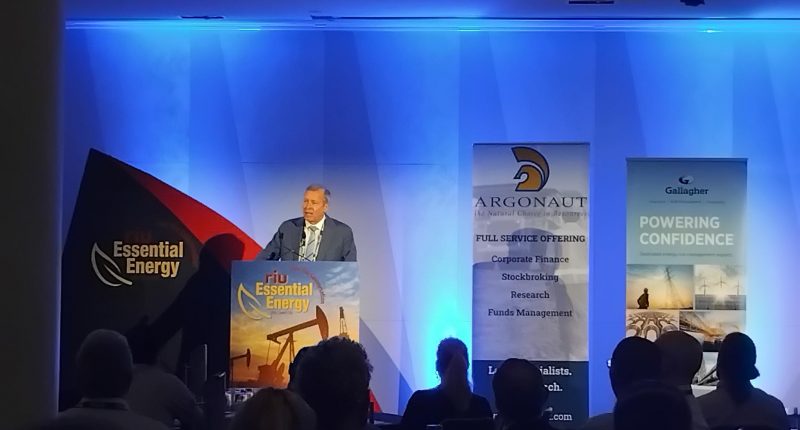If Western Australia handles itself carefully in the next few years, it could become a ‘clean energy superpower’, according to state environment and energy minister Reece Whitby.
But this would require a streamlined and responsible approach which was reflected in the policies being brought online by his government, with these representing the ‘biggest reforms since the EPA (Environmental Protection Authority) was brought in the early seventies’.
Speaking to the RIU Essential Energy conference in Perth on Wednesday, Mr Whitby said one of the key changes was the introduction of parallel approvals – meaning that companies could tick off approvals from other regulators while the EPA was conducting its environmental assessment of a project.
“In other words, we’re not going to have every government agency sit on their hands in terms of their licensing or approvals requirements while the EPA makes a decision – because that could take a couple of years,” he said.
“You go get your approvals from a range of agencies while the EPA considers the assessment, and when they make a decision, you’re right to go.”
This – he added – was a needed response to the process of transition, which would need consideration of a range of energy projects.
“Our former approvals process could not facilitate investment at the speed required to build the transmission, distribution and generation needed by 2050,” Mr Whitby said.
“It’s not just those very clearly green energy projects: the green energy transition requires all sorts of projects – such as the mining of critical minerals.”
An additional change would be the removal of different parties’ right to appeal in cases where the regulator decided not to undertake an assessment.
“A lot of people have suggested the EPA needs to be independent – I’m one of them – and as an independent organisation, it should have the right decide whether to assess a project or not,” Mr Whitby said.
“At the moment…the EPA can consider a project to be lacking in environmental consequences that require its investigation, but there are people who can appeal against that and say, ‘no EPA, you’ve got it wrong’.
“If you support an independent EPA, you must support its ability to decide what it needs to assess or not. There are other public appeal opportunities, but the EPA needs to be able to get on and decide, and have confidence in the organisation that once it makes a decision to not assess, we trust its judgement.”
Another change highlighted by the minister was the expansion of the EPA’s board from 5 to 9 members, with the government aiming to ensure it had a solid breadth of experience, drawing people from different industries and backgrounds.
The agency would also be required to make sure its priorities aligned with the public interest through a ‘statement of expectations’, one of which was a dedication to the green transition.
“These sensible reforms retain all of our state’s high standards in environmental protection for which we are world famous, while streamlining processes to be more efficient and responsible,” Mr Whitby said.

